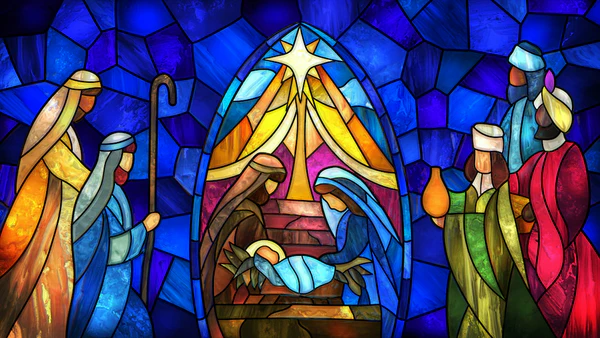It’s a popular misconception, the idea that Christian women should be submissive and passive. Those on the outside often criticize Christianity and the Bible because of these misunderstood ideas.
A passage commonly referenced when discussing these ideas is Ephesians 5:22–24:
“Wives, submit yourselves to your own husbands as you do to the Lord. For the husband is the head of the wife as Christ is the head of the church, His body, of which He is the Savior. Now as the church submits to Christ, so also wives should submit to their husbands in everything.”
What often gets overlooked are the next verses:
“Husbands, love your wives, just as Christ loved the church and gave Himself up for her to make her holy, cleansing her by the washing with water through the word, and to present her to Himself as a radiant church, without stain or wrinkle or any other blemish, but holy and blameless. In this same way, husbands ought to love their wives as their own bodies. He who loves his wife loves himself” (Ephesians 5:25–28).
So yes, wives are supposed to submit to their husbands — submit to their husbands as the spiritual leader of the house. But their husbands are also called to love their wives as Christ loves — that means completely, unconditionally and sacrificially.
The biblical design for marriage is a relationship with mutual respect and love, not a dominate, aggressive partner versus a submissive, passive partner.
This, of course, is true outside the context of marriage as well. Do the women of the Bible sit still and stay quiet? Absolutely not.
Let me tell you about some of the anti-passive women of the Bible:
- Shiprah and Puah (Exodus 1:15–21): Shiprah and Puah were Hebrew midwives who went against Pharaoh’s command to kill all baby boys born to Hebrew women.
- Rahab (Joshua 2): Rahab was a Canaanite woman who hid two Israelite spies on her roof after the king of Jericho discovered they were in the city. She misguided the king’s men and sent them on a wild-goose-chase so the spies could escape. She’s in the lineage of Jesus.
- Deborah (Judges 4): Deborah was both a prophet and a judge (the only known woman judge of Israel, at that). As a prophet, she heard directly from God and led Israel back to Him. As a judge, she was a military leader sent by God to rescue Israel from its enemies.
- Jael (Judges 4): Jael was a Kenite who drove a tent spike into the head of Sisera, the commander of the Canaanite army of King Jabin who oppressed Israel for 20 years. She brought him into her tent with apparent hospitality, but after he fell asleep, she killed him.
- Esther (Esther): Esther risked her life and stood up to the king of Persia to save the lives of her people. Though it was unheard-of for the queen to speak to the king without being invited, Esther was bold and saved the Hebrews.
- Mary Magdalene: Mary Magdalene, along with several other women, traveled with Jesus and the 12 disciples as they spread the gospel. She also financially supported His ministry (Luke 8:1–3).
- And many more, some whose names we don’t know — like the woman of Thebez who dropped a millstone onto the head of Abimelech, Shechem’s cruel king, from a tower (Judges 9:52–54); the woman who hid David’s messengers from Absalom’s servants in 2 Samuel 17; the wise woman of Abel who helped Joab (and consequently, David) defeat Sheba in 2 Samuel 20:16–22; and the Samaritan woman at the well who left Jesus and told everyone she could that she had met the Messiah (John 4:28–29).
A biblical woman is not someone who is quiet or sits idly by. She fights injustice when she sees it, she stands up for what is right and she unabashedly shares her faith.
While I do believe God made men and women to have unique roles within the Church, neither is superior to the other, and both are absolutely essential for the body of Christ to function properly.
Learning about many of these women through the past weeks and months has been an encouragement for me. It has reminded me that, amidst a society that often suggests otherwise, God values women and He uses women to enact His sovereign will. It’s also been a call to action for me.
I no longer have an excuse to sit by and be inactive. God didn’t create us for inaction. He created us to do mighty things for His kingdom. It doesn’t matter that I’m introverted or don’t have any formal training in theology; it doesn’t matter that I’m young or a woman — God has great and incomprehensible plans for my life.
I often feel small and insignificant among the giants of the faith. I think, “Who am I that God would use me?” But do you know what God says about me? What He says about you?
God says, “Because you are precious in my eyes, and honored, and I love you, I give men in return for you, peoples in exchange for your life” (Isa. 43:4).
You and I are precious to and loved by God — so much so that God destroys His enemies for the sake of His people, and ultimately gave Jesus Christ to secure our salvation.
Ladies, if you and I are honored by God and have everlasting salvation through Christ, what can this world do to us?
As Mordecai said to Esther, “For if you keep silent at this time, relief and deliverance will rise for the Jews from another place, but you and your father’s house will perish. And who knows whether you have not come to the kingdom for such a time as this?” (Esther 4:14).







